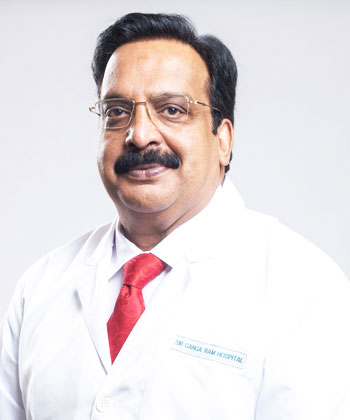-
Email Us
draktiwari@ymail.com
Email Us
Intraarticular joint reconstruction injections have emerged as a groundbreaking treatment in orthopedic care, offering an effective alternative to traditional joint replacement surgery in Delhi. This method is particularly beneficial for patients seeking less invasive options, combining the latest medical advancements with the expertise of Delhi's top orthopaedic specialists.
An intraarticular injection is a shot given directly into a joint to reduce pain and swelling. Doctors often use these injections to treat arthritis, joint injuries, and other joint inflammation issues.
The main goal of an intraarticular injection is to relieve pain by delivering medication straight to the affected joint. The injections usually include corticosteroids to reduce swelling, hyaluronic acid to lubricate the joint, or platelet-rich plasma (PRP) to promote healing and regeneration.
Corticosteroids: Effective in reducing inflammation and providing quick pain relief.
Hyaluronic Acid: Acts as a lubricant, improving joint mobility and reducing friction.
Platelet-Rich Plasma (PRP): Uses the patient's blood to promote healing and tissue regeneration.
Unlike joint replacement surgery, these injections are non-surgical, involving minimal recovery time and lower risk of complications.
Patients often feel significant pain relief and better joint movement, which can last from a few months to a year, depending on the injection type and the patient's condition.
These injections can often delay or even prevent the need for joint replacement surgery, especially when used with treatments like physical therapy.
Each treatment is designed for the patient's specific condition to ensure the best results.
These injections are ideal for patients suffering from moderate to severe osteoarthritis, those dealing with joint pain resulting from injuries, or patients facing inflammation that hasn't improved with other therapies.
For patients who cannot undergo surgery due to factors such as age, medical issues, or personal choice, these injections can serve as a viable alternative.
Intraarticular injections have emerged as a transformative approach in the management of joint-related ailments, and under the expertise of Dr. Anant Kumar Tiwari at Sir Ganga Ram Hospital, this technique has reached new heights. These targeted injections not only deliver medication directly into the joint space but also minimize systemic side effects, allowing for precise treatment of conditions like osteoarthritis and rheumatoid arthritis. With each injection tailored to individual patient needs, there's an opportunity for better recovery outcomes and improved quality of life.
As an expert in joint replacement surgery in Delhi, Dr. Tiwari leverages intraarticular injections as part of a comprehensive treatment plan that prioritizes patient quality of life. By exploring nonsurgical options first, he gives patients more control over their health choices.
The injection is given by a joint replacement surgeon using a needle to deliver medication directly into the joint.
You might feel some discomfort during the injection, but it usually lasts a short time.
The onset of pain relief can vary, but it often takes a few days to notice improvement.
When performed by a qualified surgeon like Dr. Tiwari, intraarticular injections are generally safe.
The frequency of injections depends on the condition being treated and the response to the treatment. It's essential to follow your doctor's recommendations.
